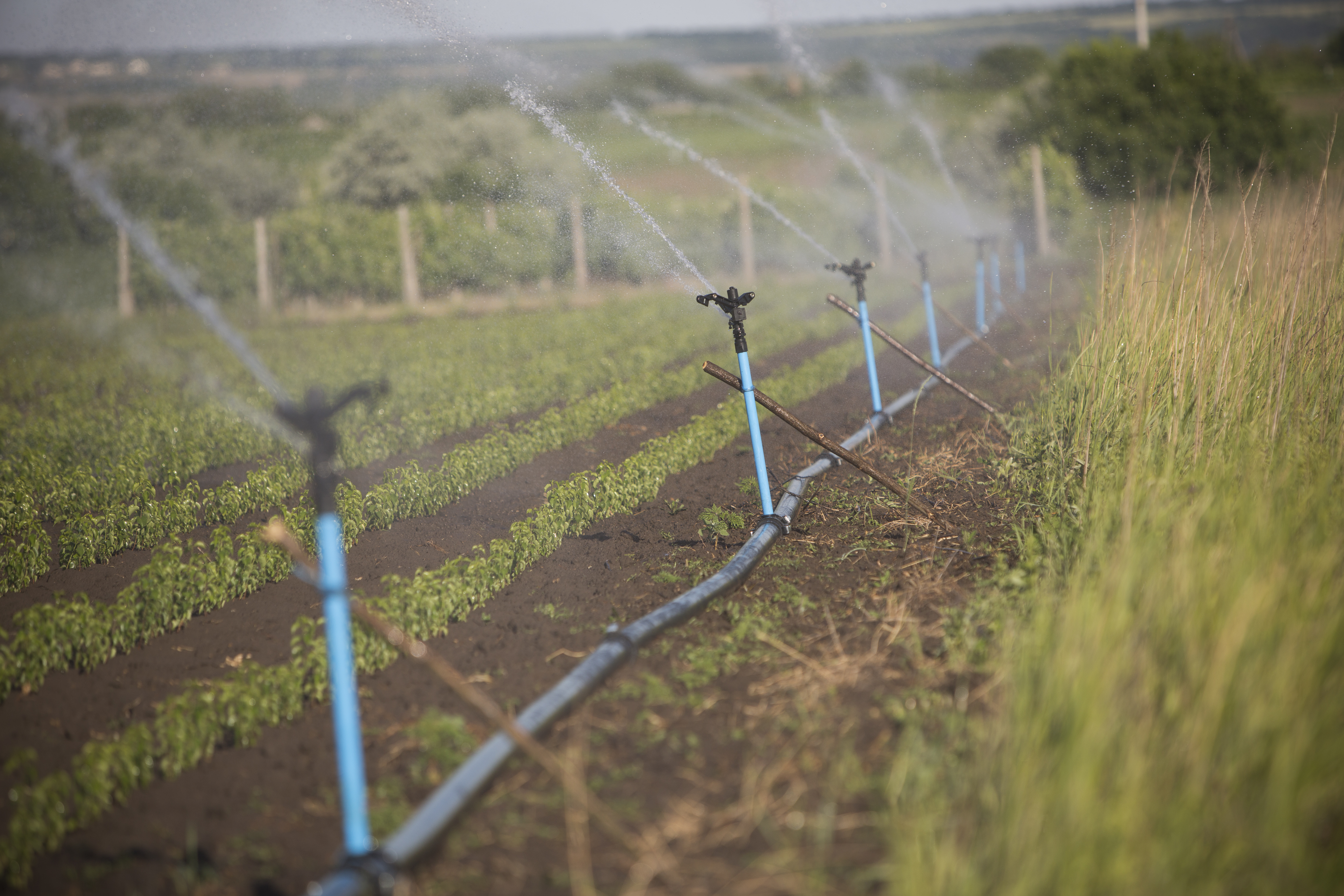
MCC
MCC's five-year, $262 million compact with Moldova helped organize water users associations that manage modern irrigation systems, supporting the production of high-value agricultural products.
For the first time in Moldova, farmers are in charge of their own irrigation water resources. That may seem like a simple idea, but it is a significant change from Moldova’s recent history.
As part of its five-year, $262 million compact with Moldova, the Millennium Challenge Corporation helped organize 10 water users associations that are now managing and maintaining irrigation systems rehabilitated by the compact’s $123 million Transition to High Value Agriculture Project.
To help create the associations, MCC worked with the Government of Moldova to reform laws and policies that transfer authority of water resources from centralized control to the local communities. Before the compact, there was no legal framework for farmers to form an association, manage irrigation equipment, collect fees or monitor water usage.
In Criuleni, the water users association has 403 members who are benefitting from an MCC-funded rehabilitated irrigation system on the Nistru River. Farmers grow fruits, vegetables and berries on 1,650 acres of irrigated land—and the group is already exploring the idea of expanding by another 1,200 acres, said Alexei Ciobanu, president of the Criuleni water users association.
“The farmers in this area now have a voice in managing the price, managing the upkeep—this was unheard of before,” Ciobanu said. “They feel like they own the system now.”
Managing their own water resources brings both benefits and responsibilities for Moldova’s farmers – but it puts them in control of their businesses and gives them more autonomy in a country where government performance is a major concern, as it is in many countries.
MCC Deputy CEO Nancy Lee traveled to Moldova last week to celebrate the opening of new irrigation systems and more effective, localized governance with area farmers.
"We and our Moldovan partners were not satisfied to just rebuild outdated, centralized Soviet systems,” Lee said. "We brought the best, most cost-efficient and environmentally friendly technology to Moldova and deployed designs that can be easily replicated and expanded as other investors – public and private – witness the success of these systems.”
The new systems have precise measuring and monitoring equipment that allow for more transparent operation, with fewer losses and a clearer system for keeping track of and billing water.
MCC also worked with the Government of Moldova to pass a new law that grants water rights for 12-25 years under special authorizations. This allows water users associations to invest in irrigation with confidence that water will be available in the quantity and quality they need to irrigate their land.
The Criuleni association, for example, signed an agreement in 2011 with the Government of Moldova that allows the association to manage their irrigated water for 30 years.
"The only condition imposed by the government is to use the resources in a reasonable, corresponding manner," Ciobanu said. “We’re in control now.”
The water users associations are an important example of a transparent and successful locally managed governance system in Moldova that can serve as an effective model for the future.
MCC’s Moldova compact is helping the country transform into a modern European nation and become a stronger, more stable partner for the U.S. – not only opening up opportunities for U.S. businesses but also supporting U.S. national security in an important region of the world.
Beneficiaries of MCC investments routinely share stories of how their lives have changed for the better. After a compact is completed, MCC funds independent evaluations of project impact, which can be found in our evaluation catalog.

